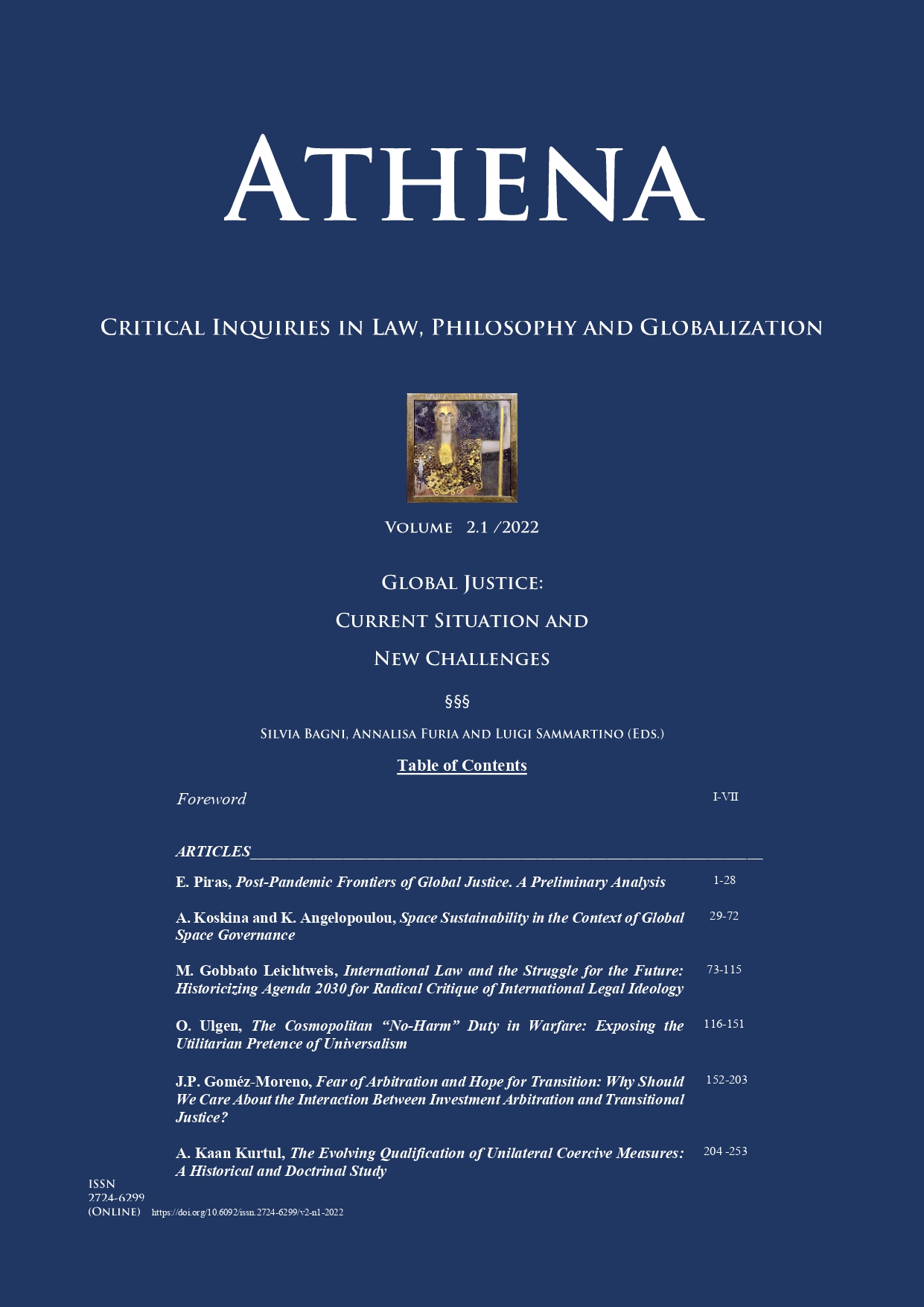The Evolving Qualification of Unilateral Coercive Measures: A Historical and Doctrinal Study
DOI:
https://doi.org/10.6092/issn.2724-6299/13760Keywords:
coercion, non-intervention, state sovereignty, responsibility of states, crimes against humanityAbstract
Unilateral coercive measures are deeply rooted in the history of statehood, yet their legal qualification continues to evolve. In a factually unequal international order, the governments of core countries continue to apply such measures as a foreign policy tool in driving peripheral countries to submission despite human rights concerns and a growing consensus on the illegality of their conduct. As most legal scholars struggle to define what constitutes a unilateral coercive measure, the conditions that beget coercive measures and the historical progress that led to today’s predominant views are largely overlooked. Thus, this article is the fruit of a historical and doctrinal study of unilateral coercive measures and their qualification, as it aims to provide an insight as to what lies ahead in light of the historical precedent and the current progress in the field of public international law, human rights law and international criminal law.
Downloads
Downloads
Published
How to Cite
Issue
Section
License
Copyright (c) 2022 Aytekin Kaan Kurtul

This work is licensed under a Creative Commons Attribution 4.0 International License.





